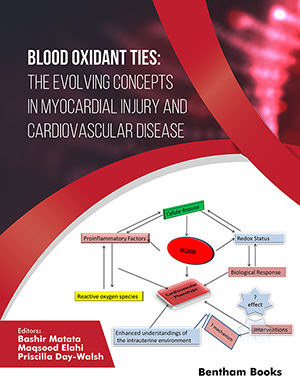Abstract
Atherosclerotic plaque destabilization is a major cause of unstable angina, myocardial infarction, and sudden cardiac death. Macrophages, which are an essential component of unstable plaques, play a pivotal role in the destabilization process, whereas smooth muscle cells contribute to plaque stability. Selective removal of macrophages is therefore an interesting pharmacological objective to stabilize vulnerable, rupture-prone lesions. Pharmacological agents such as clodronate, nitric oxide donors, mammalian target of rapamycin (mTOR) inhibitors, protein synthesis inhibitors, and statins, that are capable of selectively depleting macrophages in atherosclerotic plaques without affecting smooth muscle or endothelial cells, have recently been identified. This review focuses on the mechanism of action of these drugs as well as on the potential pitfalls of drug-induced macrophage depletion.
Keywords: Atherosclerosis, macrophages, smooth muscle cells, cell death
Current Vascular Pharmacology
Title: Selective Removal of Macrophages in Atherosclerotic Plaques as a Pharmacological Approach for Plaque Stabilization: Benefits Vs. Potential Complications
Volume: 8 Issue: 4
Author(s): Valerie Croons, Wim Martinet and Guido R.Y. De Meyer
Affiliation:
Keywords: Atherosclerosis, macrophages, smooth muscle cells, cell death
Abstract: Atherosclerotic plaque destabilization is a major cause of unstable angina, myocardial infarction, and sudden cardiac death. Macrophages, which are an essential component of unstable plaques, play a pivotal role in the destabilization process, whereas smooth muscle cells contribute to plaque stability. Selective removal of macrophages is therefore an interesting pharmacological objective to stabilize vulnerable, rupture-prone lesions. Pharmacological agents such as clodronate, nitric oxide donors, mammalian target of rapamycin (mTOR) inhibitors, protein synthesis inhibitors, and statins, that are capable of selectively depleting macrophages in atherosclerotic plaques without affecting smooth muscle or endothelial cells, have recently been identified. This review focuses on the mechanism of action of these drugs as well as on the potential pitfalls of drug-induced macrophage depletion.
Export Options
About this article
Cite this article as:
Croons Valerie, Martinet Wim and R.Y. De Meyer Guido, Selective Removal of Macrophages in Atherosclerotic Plaques as a Pharmacological Approach for Plaque Stabilization: Benefits Vs. Potential Complications, Current Vascular Pharmacology 2010; 8 (4) . https://dx.doi.org/10.2174/157016110791330816
| DOI https://dx.doi.org/10.2174/157016110791330816 |
Print ISSN 1570-1611 |
| Publisher Name Bentham Science Publisher |
Online ISSN 1875-6212 |
Call for Papers in Thematic Issues
Advancements in Arterial Stiffness: Novel Therapeutic Frontiers
Arterial stiffness, a hallmark of cardiovascular disease, poses significant challenges in contemporary healthcare. This thematic issue delves into the multifaceted landscape of arterial stiffness and explores cutting-edge therapeutic interventions aimed at mitigating its adverse effects. Within these pages, readers will find a comprehensive overview of the mechanisms underlying arterial stiffness, ...read more
Ischemic Cardiovascular Diseases: Mechanisms, Diagnosis and Therapy
Ischemic cardiovascular disease includes myocardial infarction, coronary atherosclerotic heart disease, angina pectoris, etc., constitute the leading cause of patient mortality by preventing tissues from getting sufficient oxygen and nutrients. Ischemic heart disease, as a clinical condition, is characterized by myocardial ischemia, causing an imbalance between myocardial blood supply and demand, ...read more
TREATMENT OF CARDIOVASCULAR DISEASE IN CHRONIC AND END STAGE KIDNEY DISEASE
Cardiovascular disease still remains the leading cause of death in Chronic and End Stage Kidney Disease, accounting for more than half of all deaths in dialysis patients. During the past decade, research has been focused on novel therapeutic agents that might delay or even reverse cardiovascular disease and vascular calcification, ...read more
 25
25
- Author Guidelines
- Graphical Abstracts
- Fabricating and Stating False Information
- Research Misconduct
- Post Publication Discussions and Corrections
- Publishing Ethics and Rectitude
- Increase Visibility of Your Article
- Archiving Policies
- Peer Review Workflow
- Order Your Article Before Print
- Promote Your Article
- Manuscript Transfer Facility
- Editorial Policies
- Allegations from Whistleblowers
- Announcements
Related Articles
-
Mechanisms And Prevention Of TAVI-Related Cerebrovascular Events
Current Pharmaceutical Design Role of Adiponectin in Obesity, Hypertension, and Metabolic Syndrome
Current Hypertension Reviews Piperine: Medicinal, Analytical and Therapeutics perspective
Current Bioactive Compounds Advanced Glycation: A Novel Outlook on Atherosclerosis
Current Pharmaceutical Design Pharmacogenomic Challenges in Cardiovascular Diseases: Examples of Drugs and Considerations for Future Integration in Clinical Practice
Current Pharmaceutical Biotechnology Identifying Structural Features Related to the Biological Activity of a Series of AT1 Antagonists from Fragment-based Drug Design
Protein & Peptide Letters The Potential of Microalgae for the Production of Bioactive Molecules of Pharmaceutical Interest
Current Pharmaceutical Biotechnology Immune-Mediated Mechanisms in Atherosclerosis: Prevention and Treatment of Clinical Manifestations
Current Pharmaceutical Design The Effects of Sevoflurane or Remifentanil on the Stress Response to Surgical Stimulus
Current Pharmaceutical Design Drug Development and the Importance of Ethnicity: Lessons from Heart Failure Management and Implications for Hypertension
Current Pharmaceutical Design Recent Patents on Implantable Drug/Protein Delivery Systems Fabricated Using Electrospinning
Recent Patents on Biomedical Engineering (Discontinued) Extrapulmonary Sarcoidosis: A Chameleon Disease at Imaging
Current Medical Imaging Importance of Dietary Supplements to the Health
Current Nutrition & Food Science Editorial [Hot Topic: The Evolution of Cell Therapy Towards Enhancing Vascular Regeneration in the Clinic (Guest Editors: Drew Kuraitis and Erik J. Suuronen)]
Current Vascular Pharmacology The Framingham Brain Donation Program: Neuropathology Along the Cognitive Continuum
Current Alzheimer Research Production of Fibrinolytic Protease from a Halobacterium <i>Bacillus licheniformis</i> VITLMS Isolated from Marine Sponges of Rameshwaram Coast, India
Current Bioactive Compounds An Overview of the Effect of Weight Loss on Cardiovascular Autonomic Function
Current Diabetes Reviews Intranasal Drug Delivery to the Central Nervous System: Present Status and Future Outlook
Current Pharmaceutical Design Value of Real Time Three Dimensional Transesophageal Echocardiography in General Cardiology Practice
Recent Patents on Medical Imaging Functional Null Mutations in the Gonosomal Homologue Gene TBL1Y are Associated with Non-Syndromic Coarctation of the Aorta
Current Molecular Medicine


























